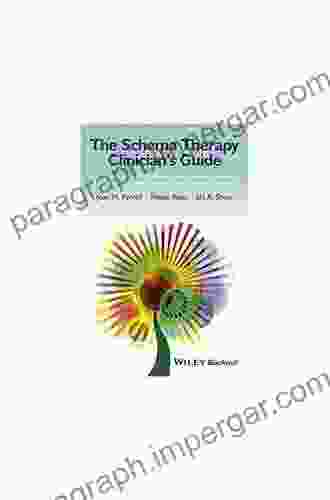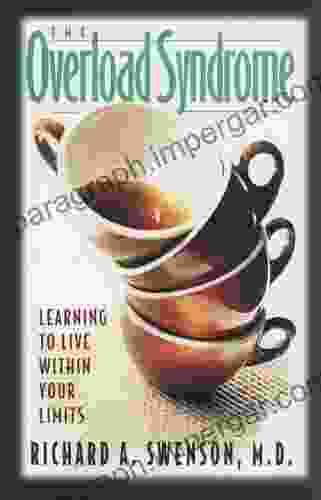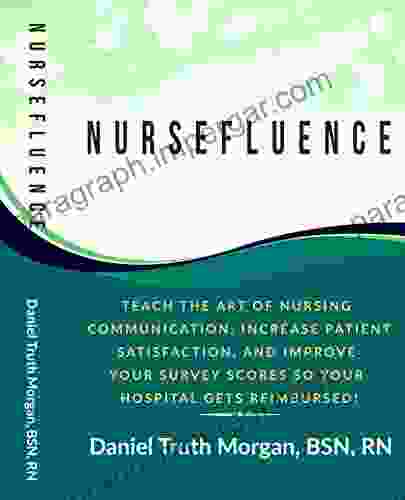Unlock the Power of Schema Therapy: The Comprehensive Guide for Clinicians

In the realm of psychotherapy, understanding and addressing deep-seated patterns of behavior and cognition is crucial for facilitating lasting change. Schema Therapy, a groundbreaking approach developed by Dr. Jeffrey Young, has revolutionized the field by providing a comprehensive framework for working with these patterns, empowering clinicians to help clients break free from self-limiting beliefs and achieve greater well-being.
For clinicians seeking to master this transformative technique, "The Schema Therapy Clinician's Guide" is an indispensable resource. This comprehensive guide provides a step-by-step roadmap for implementing Schema Therapy in practice, equipping clinicians with the knowledge, skills, and interventions necessary to effectively address a wide range of psychological challenges.
4.7 out of 5
| Language | : | English |
| File size | : | 16653 KB |
| Text-to-Speech | : | Enabled |
| Screen Reader | : | Supported |
| Enhanced typesetting | : | Enabled |
| Word Wise | : | Enabled |
| Print length | : | 339 pages |
| Lending | : | Enabled |
A Deeper Look at Schema Therapy
At the core of Schema Therapy lies the concept of schemas, which are enduring patterns of thinking, feeling, and behaving that develop early in life and continue to influence our experiences throughout adulthood. These schemas can be either adaptive or maladaptive, and it is the maladaptive schemas that often lead to emotional distress and dysfunctional patterns of behavior.
"The Schema Therapy Clinician's Guide" provides an in-depth exploration of the 18 maladaptive schemas, classifying them into five schema domains: disconnection and rejection, impaired autonomy and performance, impaired limits, other-directedness, and overvigilance and inhibition. By understanding the specific characteristics, consequences, and treatment strategies for each schema, clinicians can tailor interventions to meet the unique needs of each client.
Evidence-Based Techniques and Interventions
"The Schema Therapy Clinician's Guide" goes beyond theory by providing a wealth of evidence-based techniques and interventions that clinicians can use to support clients in transforming their maladaptive schemas. These techniques are organized into four phases:
- Assessment and Conceptualization: Gathering comprehensive information to develop a detailed case conceptualization, including the identification of schemas and target problems.
- Change Strategies: Implementing a range of cognitive, behavioral, experiential, and interpersonal interventions designed to modify maladaptive schemas and promote healthy coping mechanisms.
- Skills Training: Teaching clients practical tools and techniques to manage their emotions, thoughts, and behaviors, such as mindfulness, cognitive restructuring, and assertiveness skills.
- Relapse Prevention and Maintenance: Establishing strategies to help clients maintain progress and prevent relapse, including relapse triggers identification and coping plans.
The guide provides detailed instructions for each technique, along with case examples and troubleshooting tips to help clinicians navigate the therapeutic process effectively.
Special Populations and Applications
"The Schema Therapy Clinician's Guide" also delves into the application of Schema Therapy to specific populations and clinical presentations. These include:
- Individuals with personality disFree Downloads
- Clients with comorbid mental health conditions, such as anxiety and depression
- Couples and families
- Individuals from diverse cultural backgrounds
By providing tailored guidance for these populations, the guide enables clinicians to effectively address the unique challenges and needs of a wide range of clients.
Supervision and Training Resources
Recognizing the importance of ongoing learning and support, "The Schema Therapy Clinician's Guide" provides comprehensive resources for supervision and training. These include:
- A discussion of the principles and benefits of supervision in Schema Therapy
- Guidance on finding and working with a qualified supervisor
- Access to online training modules and workshops
- Information on certification programs and continuing education opportunities
Benefits of "The Schema Therapy Clinician's Guide"
By investing in "The Schema Therapy Clinician's Guide," clinicians can reap numerous benefits, including:
- Enhanced understanding of Schema Therapy: A comprehensive overview of the theory, principles, and techniques of Schema Therapy.
- Improved clinical skills: Step-by-step guidance on implementing Schema Therapy in practice, including techniques for assessment, intervention, and relapse prevention.
- Increased effectiveness with clients: Evidence-based interventions tailored to specific client populations and clinical presentations, leading to improved outcomes.
- Professional development: Access to supervision and training resources, supporting ongoing learning and professional growth.
- Enhanced confidence: In-depth knowledge and practical skills empower clinicians to confidently navigate the complexities of Schema Therapy.
"The Schema Therapy Clinician's Guide" is an indispensable resource for any clinician seeking to master the transformative power of Schema Therapy. Its comprehensive approach, evidence-based interventions, and practical guidance empower clinicians to effectively address a wide range of psychological challenges and help their clients achieve lasting change. By investing in this guide, clinicians not only enhance their professional skills but also make a profound impact on the lives of those they serve.
Unlock the full potential of Schema Therapy today with "The Schema Therapy Clinician's Guide."
**Alt attribute for image:** A therapist and client sitting across from each other, engaged in a conversation.
4.7 out of 5
| Language | : | English |
| File size | : | 16653 KB |
| Text-to-Speech | : | Enabled |
| Screen Reader | : | Supported |
| Enhanced typesetting | : | Enabled |
| Word Wise | : | Enabled |
| Print length | : | 339 pages |
| Lending | : | Enabled |
Do you want to contribute by writing guest posts on this blog?
Please contact us and send us a resume of previous articles that you have written.
 Book
Book Novel
Novel Page
Page Chapter
Chapter Text
Text Story
Story Genre
Genre Reader
Reader Library
Library Paperback
Paperback E-book
E-book Magazine
Magazine Newspaper
Newspaper Paragraph
Paragraph Sentence
Sentence Bookmark
Bookmark Shelf
Shelf Glossary
Glossary Bibliography
Bibliography Foreword
Foreword Preface
Preface Synopsis
Synopsis Annotation
Annotation Footnote
Footnote Manuscript
Manuscript Scroll
Scroll Codex
Codex Tome
Tome Bestseller
Bestseller Classics
Classics Library card
Library card Narrative
Narrative Biography
Biography Autobiography
Autobiography Memoir
Memoir Reference
Reference Encyclopedia
Encyclopedia Jill Price
Jill Price Jenny Hale Pulsipher
Jenny Hale Pulsipher Joelle M Abi Rached
Joelle M Abi Rached Jo Roberts
Jo Roberts Jim Lee
Jim Lee Jill Bough
Jill Bough Ji Chen
Ji Chen Johannes Karl Fink
Johannes Karl Fink Joanna Kafarowski
Joanna Kafarowski Jeffrey T Nealon
Jeffrey T Nealon Joe Duffy
Joe Duffy Jim Willis
Jim Willis Jens Zimmermann
Jens Zimmermann Jen Hatmaker
Jen Hatmaker Jerry C Whitaker
Jerry C Whitaker Jeremiah Gertler
Jeremiah Gertler Jill Lepore
Jill Lepore Jennifer Lois
Jennifer Lois Joan Ross Acocella
Joan Ross Acocella Jerome S Bernstein
Jerome S Bernstein
Light bulbAdvertise smarter! Our strategic ad space ensures maximum exposure. Reserve your spot today!
 Ronald SimmonsUnveiling the Versatility of Liquid Silicone Rubber: A Comprehensive Guide to...
Ronald SimmonsUnveiling the Versatility of Liquid Silicone Rubber: A Comprehensive Guide to...
 Osamu DazaiDiscover the Intriguing Memoirs of the Duke of Rovigo: A Captivating Tale of...
Osamu DazaiDiscover the Intriguing Memoirs of the Duke of Rovigo: A Captivating Tale of... Oliver FosterFollow ·7.8k
Oliver FosterFollow ·7.8k Franklin BellFollow ·13.4k
Franklin BellFollow ·13.4k Preston SimmonsFollow ·11.8k
Preston SimmonsFollow ·11.8k Lee SimmonsFollow ·10.9k
Lee SimmonsFollow ·10.9k Dillon HayesFollow ·19.7k
Dillon HayesFollow ·19.7k Rex HayesFollow ·11.3k
Rex HayesFollow ·11.3k Jamie BellFollow ·7k
Jamie BellFollow ·7k Vladimir NabokovFollow ·2k
Vladimir NabokovFollow ·2k

 Christian Barnes
Christian BarnesUnleash Your Creativity: Build Interlocking 3D Animal and...
Discover the Art of Paper...
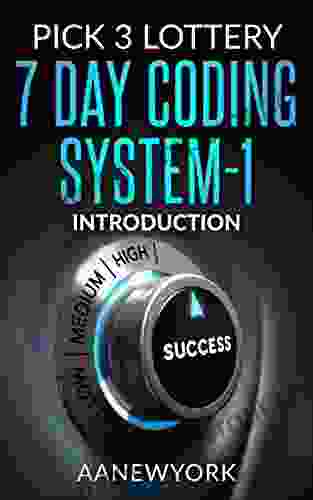
 Terry Bell
Terry BellUnveiling the Secrets of Winning: A Comprehensive Guide...
In the realm of chance and fortune, the...

 Albert Camus
Albert Camus101 Things That You Should Do Before Leaving The House In...
Starting your day right is...
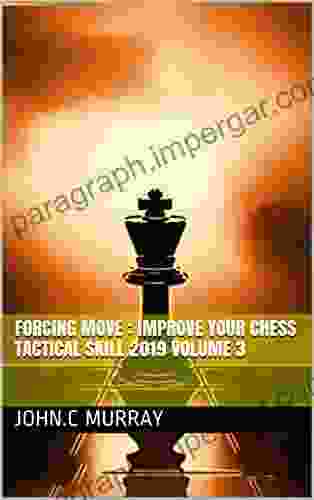
 Anthony Burgess
Anthony BurgessForcing Move 2024 Volume: Unleash Your Inner Grandmaster
Embark on an extraordinary chess...
4.7 out of 5
| Language | : | English |
| File size | : | 16653 KB |
| Text-to-Speech | : | Enabled |
| Screen Reader | : | Supported |
| Enhanced typesetting | : | Enabled |
| Word Wise | : | Enabled |
| Print length | : | 339 pages |
| Lending | : | Enabled |


